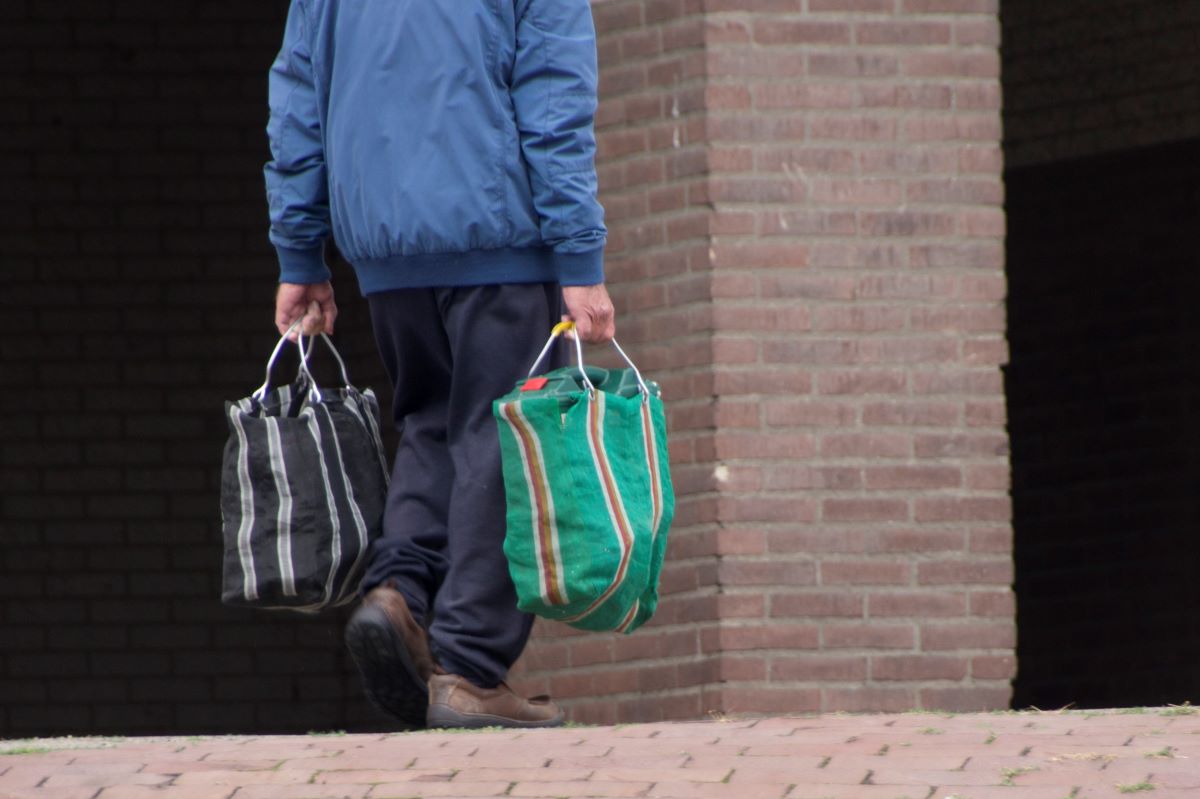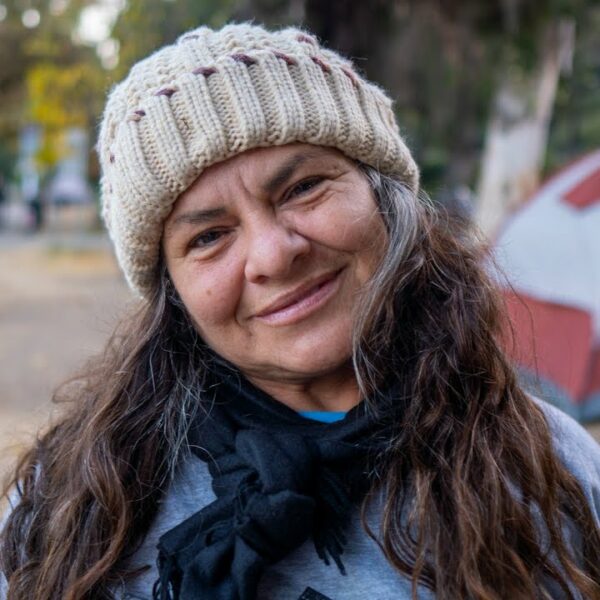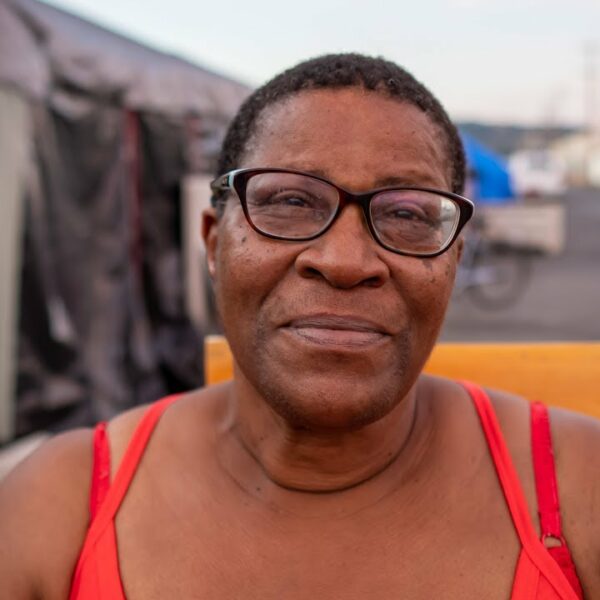The United States Does Not Recognize Housing as a Basic Need
There is a fine line between homelessness and poverty, a line that is often blurred. In the United States of America, poverty gets measured by using a threshold.
According to the University of Wisconsin-Madison, “The Census Bureau determines poverty status by using an official poverty measure (OPM) that compares pre-tax cash income against a threshold set at three times the cost of a minimum food diet in 1963 and adjusted for family size.”
For this reason, the federal poverty line for a family of four in 2023 sits firmly at just $30,000 annually. This fact is interesting for one glaringly obvious reason. The average median rent nationwide is now $1,937 a month, which equates to $23,244 per year, or 74% of a $31,000 annual salary. It is easy to see how someone earning above the national poverty threshold might still be unable to afford even a modest place to live.
This dilemma is how we wind up in an economy where “poverty” appears to be decreasing although homelessness is rising. The question isn’t why, per se, but how. How can our government classify people dangerously teetering on the edge of homelessness as simultaneously not being impoverished?
The answer, of course, is simple.
The United States government, in its current position, does not recognize housing as a basic need.
Anything not considered a basic need under the constitutional laws and current legislation does not have to be treated as a human right. So, while all Americans are permitted the elusive honor of pursuing happiness (a pursuit that defies all tangible definitions), housing is never guaranteed as part of the program.
Homelessness Proves that Housing is a Basic Need
Sharp is the double-edged sword, they say. And, in terms of homelessness, the truth cuts deep.
Because permanent, supportive, and affordable housing is not considered a basic need from a legal standpoint, homelessness can seep into the vast American landscape, despite the wealth and opulence seen on the surface.
Likewise, since homelessness has been able to persist for centuries unblemished, we now have enough data to prove that housing, most certainly, is a basic need.
Basic needs are understood to be any items essential to one’s survival. The most commonly cited examples of these needs include food, water, clothing, and shelter. In this context, please note that shelter, which is loosely defined and can often constitute anything with four walls and a roof, is not the same as housing. People residing in tents in homeless encampments technically have shelter. The same is true of individuals who are couch surfing, bouncing around between motels, sleeping on cots in the hallways of homeless shelters, and so on.
Unlike shelter, housing denotes a safe and permanent abode with a fixed address and a standard utility package. Henceforth, housing (and not just shelter) is an integral part of human survival.
This fact was widely accepted throughout much of human history. Historians suggest that humans abandoned the nomadic lifestyle approximately 10,000 years ago and have since established permanent villages. This likely happened because having a fixed address and community makes life much easier to survive.
Enduring Homelessness Causes Premature Death and Creates Unfathomable Obstacles to Survival
If nothing else, homelessness proves that without housing, people are more likely to:
- Die prematurely (Unhoused people die thirty years sooner than housed people.)
- Be violently attacked (Houseless people are currently being murdered at a rate 25x higher than the general housed population)
- Have all or most freedoms restricted (Anti-camping laws have increased by 92% since 2006, while laws criminalizing vehicular homelessness have risen by 213%)
- Be denied other basic needs like education, food, clothing, etc. (Homeless students are 87% more likely to drop out before graduation and 3x more likely to be kicked out of school. They are much less likely to have access to clean clothing and nutritional foods. This issue hinders educational and employment opportunities)
- Be admitted and readmitted to an emergency room for treatment.
- Lose their life-saving medications at the hands of law enforcement officials or due to a lack of access to medical care.
- Suffer from a lack of access to the reliable transportation needed to pursue things like occupation, education, medical care, and sustenance.
- Suffer from sleep deprivation, causing both nighttime and daytime fatigue. This lack of sleep puts unhoused individuals and families at risk of premature death due to exhaustion and diseases linked to exhaustion, such as heart attack and stroke.
Maslow’s Hierarchy of Needs Lists Shelter as One of the Foundations for Filling All Subsequent Needs
According to Maslow’s psychological theory, shelter is essential for filling subsequent needs. Without shelter (and other things like food, oxygen, and drink), it is difficult, bordering on impossible, to fill the needs stacked higher to the top of the pyramid, such as:
- Health
- Personal security
- Employment
- Friendship
- Intimacy
- Sense of community
- Social acceptance
- Respect
- Self-esteem
- And lastly, self-actualization, which, according to Maslow, is the ultimate goal
Now that we’ve seen the role homelessness plays in social outcomes, it is clear that the word “housing” should replace shelter on the pyramid and, likewise, in the modern world. Even someone with shelter who lacks permanent housing will find it exceedingly difficult to acquire the essential items listed above.
Allowing homelessness to exist for so long is one of the most failed social experiments ever. After the data is collected and examined, it becomes clear that permanent housing, as opposed to just shelter, is essential to survival. By default, this makes it a basic need we should all fight for.
Now That We’ve Established the Fact That Housing is a Basic Need Let’s Talk About Making It a Human Right
Now that you understand the life-threatening obstacles posed by not having a safe, stable space to call home, it is time to call on congress and legislators to do their part. Please urge your local lawmakers to draft new legislation that makes the basic need of housing a human right that can no longer be denied.













